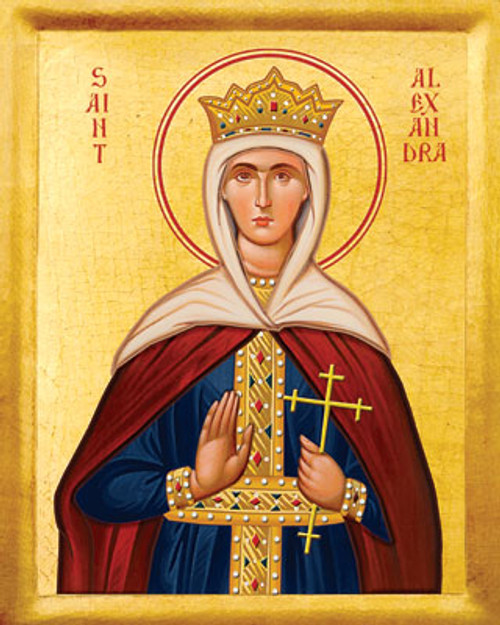St. 'Abd Al-Masih, Abbot of Mount Sinai
Commemorated March 9
A cradle Christian from the town of Najran in Arabia, Saint 'Abd Al-Masih was at first a member of a robber band. Influenced by his companions, he became a Muslim. After 13 years of dissolute life, he was touched by grace and was converted in Baalbek on hearing a priest from the church commenting on the words: “He who loves father or mother… or any other thing more than Me is not worthy of Me (Matt. 10:37).“ He then undertook a pilgrimage to the holy places and following the advice of Patriarch John V of Jerusalem, became a monk in the Lava of Saint Sabas. After 5 years, he left for Mount Sinai, where he lived an exemplary ascetic life. Finding himself one day in the town of Ramlah, he declared in the mosque that, having been a Christian, he had become a Muslim and that then, overcome with remorse, he had returned to his first, true faith. And he added: "I shall be in Saint George's church; if you want me, you know where to find me." The enraged Muslims wanted to kill him, but, through divine intervention, they were unable to see the Saint although he was standing right in front of them. Shortly afterwards, 'Abd Al-Masih left for Edessa, to pray in front of the holy Mandylion. On his return to the monastery of Mount Sinai - the superior having died in the meantime - he was elected Abbot in his place.
When he returned once again to Ramlah, a man who had been a robber with him recognized him and went off to denounce him. On being questioned, he concealed nothing of his conversion, and, when he was urged to return to Islam in order to save his life, he refused, ridiculing the religion of the Muslims. He was then beheaded on the governors orders, and his body was thrown into a deep ditch. Nine months later, while the Christian's were secretly removing his holy relics from the ditch, they shown with a white light. His body was then placed in the sacristy of St. George's Church in Lydda.
Taken from the Synaxarion







